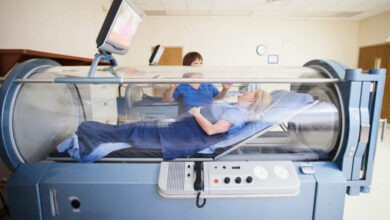A genetically edited pig kidney successfully transplanted into a human being

A 62-year-old Massachusetts man with a failing kidney is the unique patient to receive a genetically edited pig kidney. For the first time, surgeons in Boston made a successful attempt to transplant a pig kidney into a 62-year-old man. This procedure laid the foundation to provide readily available organs to patients in dire need of organ transplants due to any disease.
Richard Slayman, 62, from Weymouth, Mass, was suffering from end-stage renal disease. He received the genetically edited pig kidney on Saturday in a four-hour surgical procedure at Massachusetts General Hospital. Shortly after the transplant, the kidneys start working to produce urine, indicating the normal function of the kidneys. The patient is recovering well with an expectation of an early discharge.
Tatsuo Kawai, one of the surgeons who performed this procedure, stated that it was the most beautiful kidney I have ever seen. This surgical procedure is the latest advancement in xenotransplantation, the transfer of organs from animals to human beings. It can help to create genetically modified organs for the patients who are waiting for any donor to provide them with the necessary organs. In the United States, more than 1 lac people are on the transplant waiting list. However, every 17 people die each day waiting for an organ. Kidneys are the basic and important organ needed for transplant.
Is there any hurdle in transplanting organs to human beings?
There is the biggest problem of transplant rejection in human beings. Our body reacts very violently to the outer agents. Our immune system makes antibodies or has performed antibodies to reject the transplant. If it were easy, surgeons may have performed multiple transplant procedures till now. However, transplant rejection is the leading cause of the failure of this procedure.
Is there any way to get over the transplant rejection?
An intact pig kidney may induce a transplant rejection stimulus by exhibiting itself as an antigen. Researchers preferred to go for gene-editing technology to reduce the chances of rejection. Suppressing the genes that can cause potent rejection can help to decrease the chance of rejection.
The pig kidney was bred by eGenesis of Cambridge to be transplanted into the Slayman. Scientists used CRISPR-Cas9 to perform almost 69 genetic edits to the pig kidney. It includes the removal of harmful pig genes and inducing certain beneficial genes to avoid any possible chance of transplant rejection. Moreover, they also used CRISPR-Cas9 to inactivate the innate viruses present in the pig that can induce infection in the human recipient.
- They removed multiple pig genes that produce sugar with such antibodies to which our immune system reacts to cause transplant rejection.
- Added multiple genes in the pig kidney to improve the compatibility of the kidney within the human body.
- Viruses in pigs can be a source of infection in the recipient. Inactivated such viruses in the pig genome are also known as porcine endogenous retroviruses. Inactivating these viruses reduces the risk of any kind of infection in human beings.
Besides the pig kidneys, scientists are also exploring gene editing in pig hearts for a successful transplant in humans. So far, two such cases have been performed in people who are too ill to be eligible for a donor’s heart. In both cases, patients lived for less than two months due to different complications.
Slayman received a first kidney transplant in 2018 from a human donor. The donor kidney functioned well in the start but started to go into failure after years of living with diabetes. Diabetes can cause irreversible damage to the kidneys, leading to kidney failure. He had no choice other than to go for dialysis. The dialysis process was also not as simple. It causes multiple complications like clotting in his blood vessels. Slayman undergoes multiple procedures to fix the problems.
Winfred Williams, a kidney specialist and member of the Slayman medical team, suggested a pig kidney transplant to him. Slayman stated, “I saw it not only as a way to help me but a way to provide hope for thousands of people who are in dire need of a transplant to survive.”
The procedure was performed under the Food and Drug Administration’s compassionate use pathway. It allows patients with life-threatening conditions to get access to experimental treatment when no other treatment option is left. Slayman also received immunosuppressive drugs to minimize the chance of any rejection. His medical team is properly monitoring his kidney function using ultrasound. The long-term success of transplants is still not clear. There are so many unknown things that need to be managed. This is the first time we are doing it, said Riella.
Previous transplant interventions
- Researchers have done experiments on gene-edited pig hearts for human beings. There are two such cases of gene-edited pig heart transplants. Unfortunately, both cases survive less than two months.
- Surgeons at the University of Pennsylvania successfully attached a gene-edited pig liver to a brain-dead person. The organ functioned quite normally for about 72 hours. The liver is a complicated organ because of multiple catabolic and anabolic functions. So, researchers believe that pig livers are ready to be connected outside the body and function properly rather than being put inside the human body.
Locke, an abdominal transplant surgeon at the University of Alabama at Birmingham, says that the recent technology of xenotransplantation will surely hype up the momentum of using genetically edited pig organs to be transplanted in human beings. It will revolutionize this field with an increasing hope of life for the patients waiting for any




